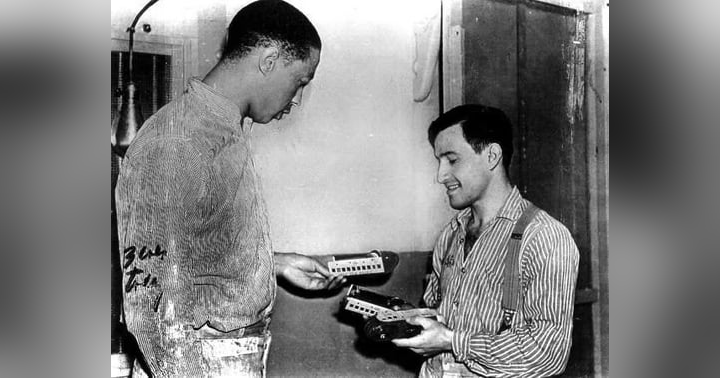Fort Lauderdale Airport Shooting

On January sixth, 2017, a man exited the bathroom near the baggage claim at Fort Lauderdale-Hollywood International Airport in Broward County, Florida, and opened fire. He had a semi-automatic 9mm handgun and two clips with him and he emptied both of those clips before he hit the ground, killing five and injuring six more people. In the absolute chaos that broke out during the attack another 36 people were injured, trying to escape in stampeding crowds who were dashing for exits and looking for cover.
The shooting was a terrifying shock for the whole country and perhaps even more so for the family and friends of Esteban Santiago-Ruiz.
Esteban was born on March sixteenth, 1990, in New Jersey, but he and his family moved to Puerto Rico when he was only two years old. He spent most of his life there and even joined the Puerto Rico National Guard. He was quiet, but well respected. His neighbors used to salute him when they passed him on the streets.
In 2010, Esteban was deployed to Iraq as a combat engineer, where he cleared roadside bombs and repaired bridges, but he returned from service a changed man. The sudden and drastic change in his demeanor reportedly stemmed from the time he watched a bomb go off near two of his friends in Iraq, an event that those who knew Esteban said stayed with him long after he’d come home.
In 2014 he seemed to get a much needed fresh start when he and his brother moved to Anchorage, Alaska. Esteban joined the Alaska National Guard, he even met a woman and had a child together. When Esteban’s brother moved away from Anchorage, Esteban was a new father and lived in a small but nice apartment with his young family. On the surface, things only seemed to be changing for Esteban for the better.
But by 2016, everything had changed all over again. Esteban had gone from a private in the national guard who had ten awards from his times in service, to a belligerent, troubled man who seemed to be getting more and more violent.
He left that small but nice apartment in Anchorage after an alleged attack when he reportedly tried to strangle the mother of his child. From there he moved into a motel known for attracting the wrong sorts of people and only continued to decline. Neighbors would wake up to Esteban screaming and shouting out of his window in the middle of the night. Sometimes they would find him having arguments with himself in the car park between the motel and the liquor store across the street.
“He’d just be talking to himself… screaming as if he was having a battle with himself,” Naomi Harden, a clerk at that liquor store, later told the press.
Esteban himself seemed to feel that something was going horribly wrong. He walked into an FBI office in Anchorage and told the staff there that he was hearing voices. These voices, he claimed, came from the United States Government and they wanted him to do things. Sometimes they just ordered him to commit violent acts, sometimes they wanted him to infiltrate ISIS chat rooms and gather intel on terrorists.
The staff at the FBI were, understandably, a little on edge with Esteban’s strange confession, especially because he came into the office carrying his infant child. They sent him to a psychiatrist and confiscated the gun that Esteban had a permit for as they waited for the results of his examination.
After treatment, the psychiatrist determined that Esteban was mentally fine, and he was discharged. After a further investigation, Anchorage authorities discovered that Esteban had no ties or links to terrorism and he hadn’t broken the law. They then returned his gun to him.
But as a result of his deteriorating mental health and increasingly violent outbursts, Esteban lost his last tether to reality. He was fired from his job as a security guard, which was how he’d been earning a living after being discharged from the Alaska National Guard.
Esteban was now officially cut loose.
Only a few months later, he booked a one-way flight to Florida and alerted the airport that he would be bringing his gun with him. The permit for his weapon was valid, and he was free to bring the gun with him as long as he declared it and had it packed in his check-in luggage in a secure case. Esteban followed airport procedures to the T. He even had a military ID on him on the day of his travels to further ease any concerns staff may have.
On the other side of his flight, Esteban retrieved his luggage at Fort Lauderdale Airport and went to the bathroom. There he unlocked the case, put the clip in his gun and burst out of the room. By his own account, he then started firing at the first people he encountered.
The shooting only lasted for about 75 seconds, but Esteban managed to empty both of his clips. He then laid down on the floor near the baggage claim and waited to be arrested. It took only eight-five seconds from the start of Esteban opening fire to him being detained and once law enforcement had him, his confession started almost right away.
He told the arresting officers a now chilling, familiar version of events. Esteban said that he was being mind controlled by the American government, who wanted him to infiltrate online terrorist chat rooms. He couldn’t give a clear motive for his attack on the airport or the innocent civilians that were there at the time and, as the Anchorage authorities had already determined, Esteban had nothing to do with online terrorists. He did, however, later confirm that the gun he’d used in the shooting was the very same gun that the Anchorage authorities had returned to him back in 2016.
After his arrest, Esteban was diagnosed as a schizophrenic. Had this been picked up on during his treatment in 2016, he would have lost his permit to carry a weapon, meaning that this attack could have possibly been entirely avoided. He improved enough after treatment to be found competent to stand trial, where his attorneys pleaded guilty on his behalf to avoid a potential death sentence. Instead, Esetban was given five consecutive life sentences with an additional 120 years to serve in prison, essentially meaning that he will never be released from prison again.




